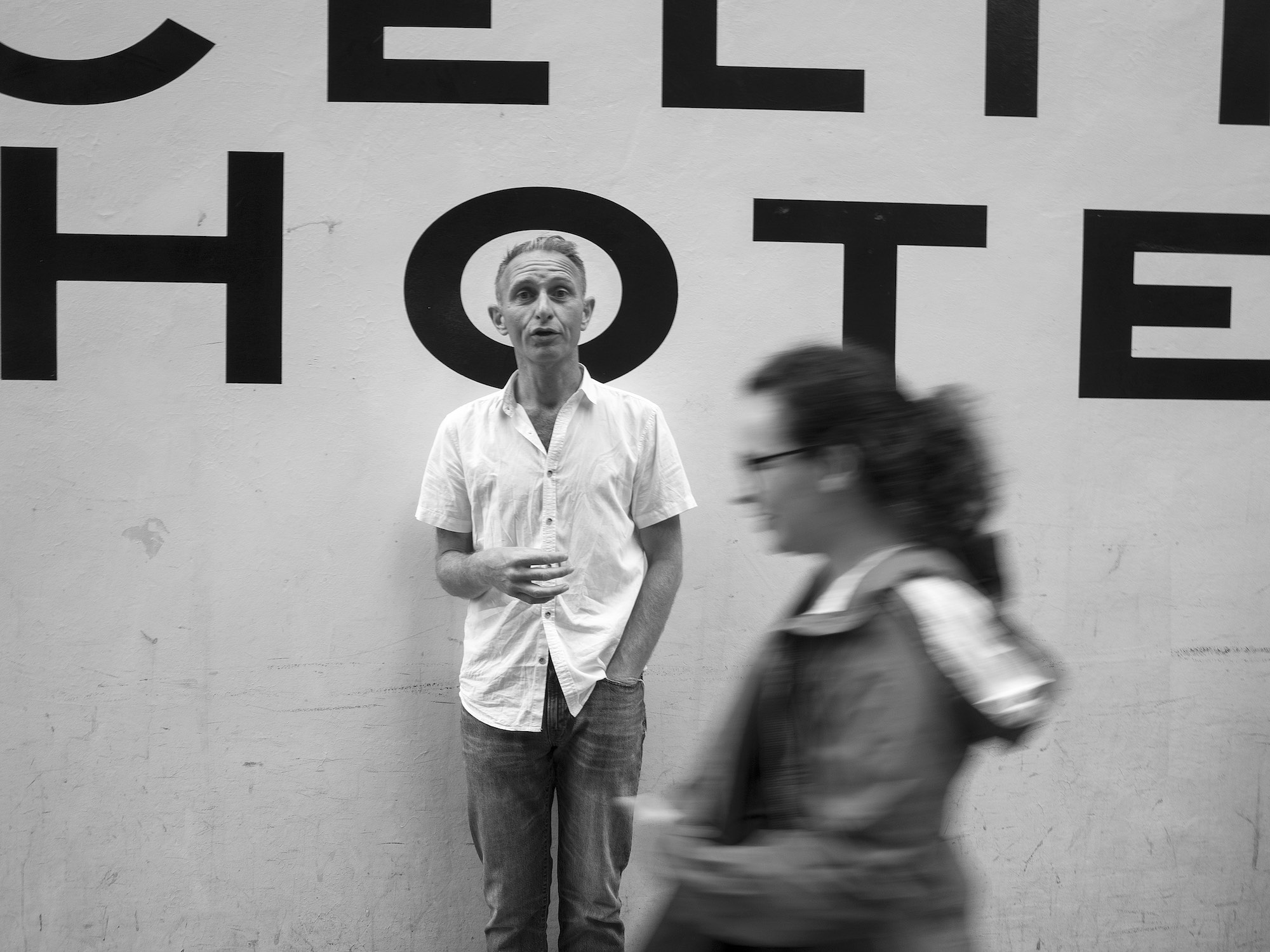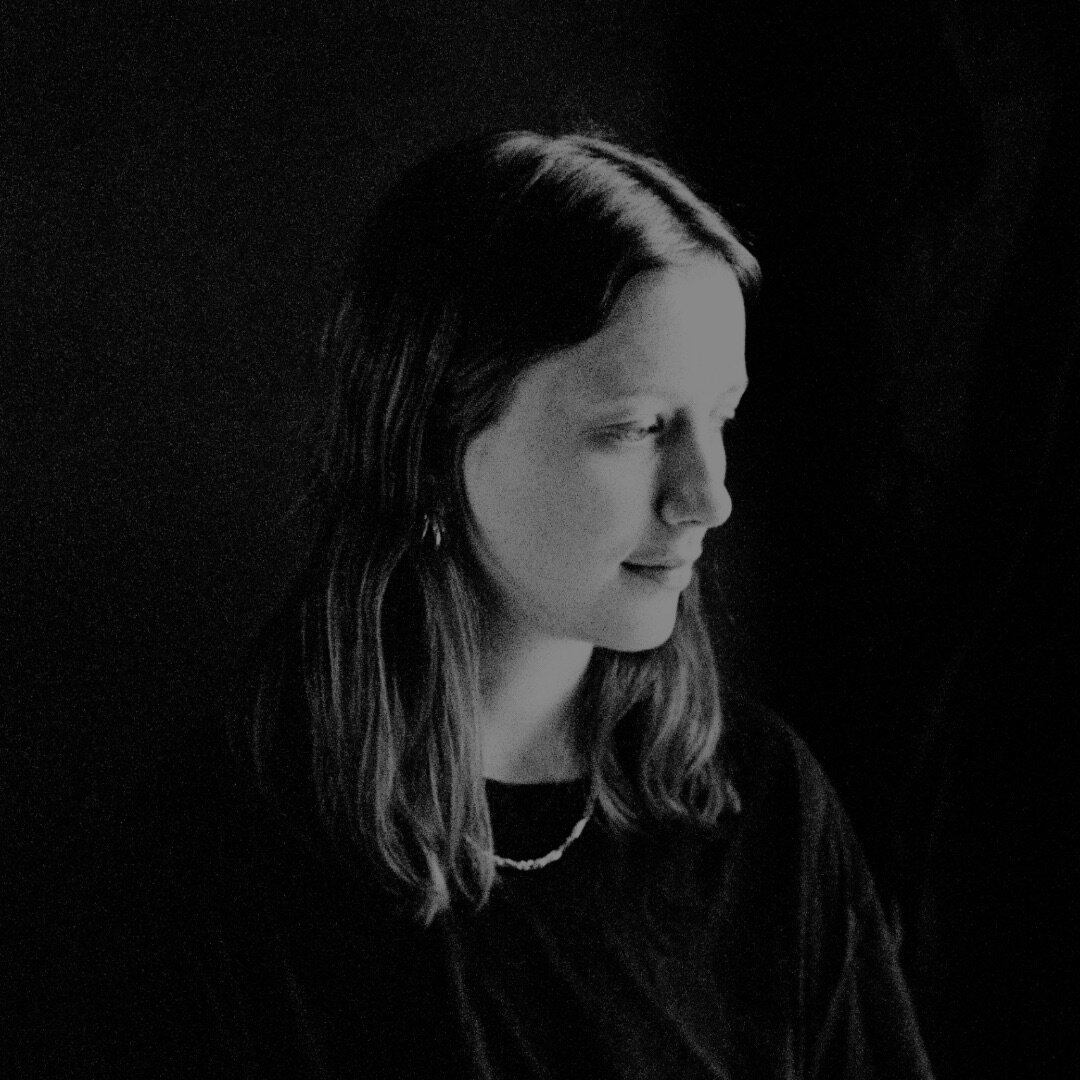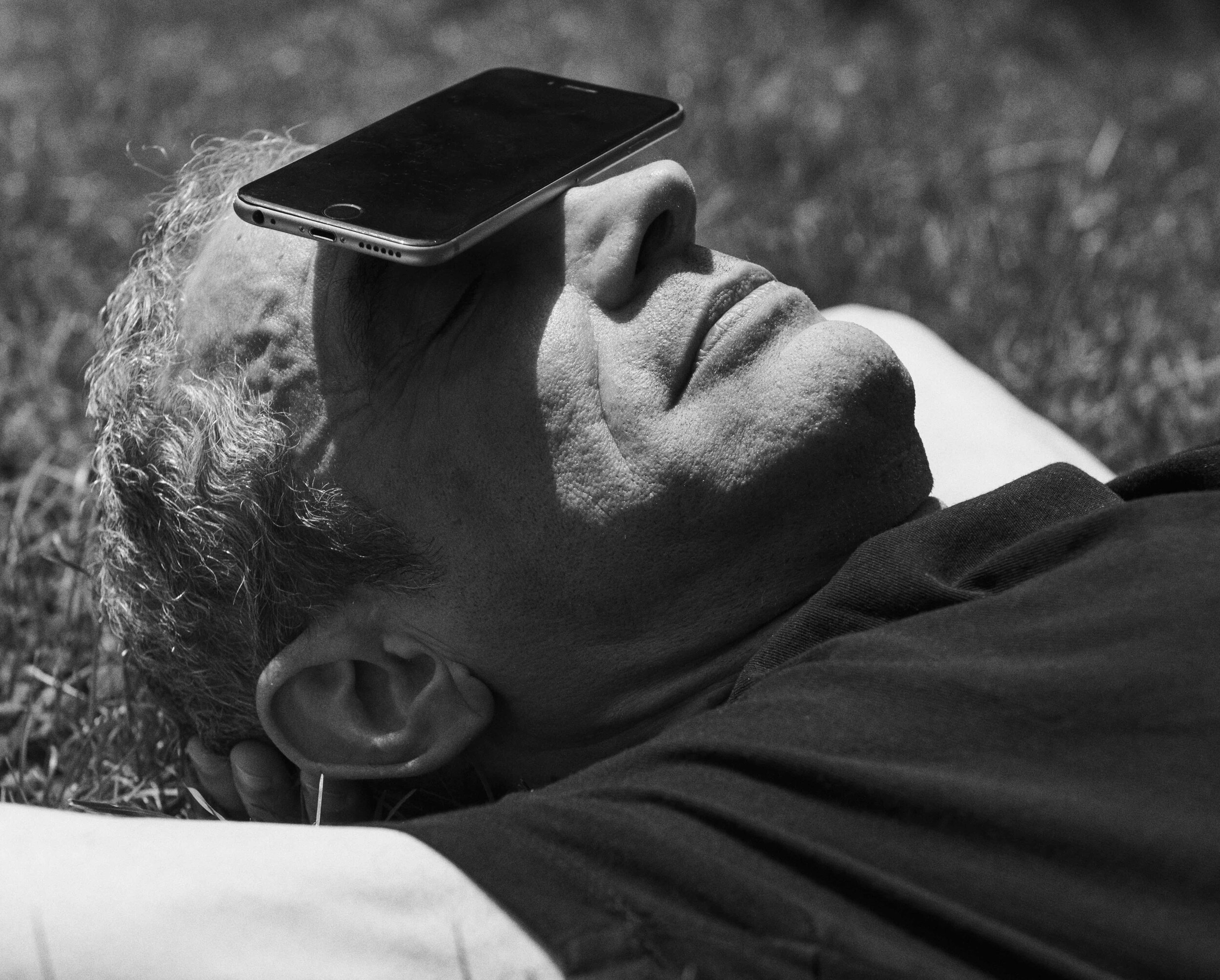Infinite Detail: Tim Maughan

Tim Maughan’s debut novel Infinite Detail paints a chilling future world of post-technological breakdown, threaded with hope, humanity and bass-heavy beats. But it isn’t really about the future – it’s about the present day, he told us via neural link
This interview is taken from Good Trouble Issue 21, published February 2020
Tim Maughan’s debut novel, Infinite Detail, is a thrilling, nightmarish portrayal of a near-future world reliant on the internet for almost everything, and what happens when the whole surveillance-capitalist shitshow comes crashing down: social collapse, creeping authoritarianism and an increasingly embattled resistance. Sound familiar? It should – as he explains, science-fiction “isn’t really about the future, it’s about the present.”
What makes Maughan’s techpocalypse so compelling is not just his command of technological detail, but the glimmer of salvation – one of community and deep personal relationships, drawn from his passion for underground electronic music culture of the last few decades. Set mostly in a near-future Bristol, England, certain scenes in his book find a return to humanity in that euphoric, edge-of-civilisation sense of unity that can be found with a similarly minded crowd in front of a ribcage-rattling sound system. Good Trouble opened up a neural link to Ottawa, Canada, where the British author lives, and pestered him with a few questions.
Your generation is fairly unique in that it was able to experience both the early utopian promise of the worldwide web, as well as today’s surveillance-capitalist nightmare. In this respect, I was interested in how your book looks both forward and backward – to a near-future dystopia, as well as nostalgia for a recent ‘past future’. How much did that unique generational viewpoint on technology and society inform this novel?
That generational perspective was important in forming the book, certainly. The work of the late critic and theorist Mark Fisher was at the forefront of my mind when I was writing it – as it often is. He wrote about ‘hauntology’, which he described as a nostalgia not so much for the past, but for lost futures and possibilities. Usually he was describing art and music, and it was something I wanted to confront head-on in the book, in a kind of introspective way. I realised that makes up a lot of my perspective on the world – that I’m always referring back to my formative years growing up in the 80s and especially the 90s, not with a desire to go back there, but with a sadness that the political and cultural futures we could see emerging were denied us by neoliberal capitalism. And now, of course, it increasingly feels like it’s going to deny us any future.
“I’m always referring back to my formative years growing up in the 80s and especially the 90s, not with a desire to go back there, but with a sadness that the political and cultural futures we could see emerging were denied us by neoliberal capitalism. And now, of course, it increasingly feels like it’s going to deny us any future.”
On Twitter, readers and followers often bring to your attention aspects of the modern world that are #InfiniteDetail. What’s it like observing your book “come to life” in this way?
It’s odd. It’s both rewarding and dismaying. Rewarding because it’s nice to see that readers are engaging with the book and its themes, dismaying because – well, it’s just such a reminder that everything is fucked. Plus it’s an old refrain but it’s true: science-fiction isn’t really about the future, it’s about the present. I’m still not sure if Infinite Detail is really science-fiction, but if it is, its aim was always to engage very directly with the present, so it’s less about watching the book come to life – that life was already there, it’s more about whether the book did a good job of capturing it.
Your portrayal of the collapse of the internet chillingly brings to life how much we depend on it… Recent books like Douglas Rushkoff’s Team Human and Shoshana Zuboff’s Age of Surveillance Capitalism argue that urgent resistance against this aggressive new form of capitalist power is required. As we move further and further into a networked world run by barely accountable corporations, what do you see as the most effective form of popular resistance on this front? Or is the toothpaste out of the tube, so to speak?
It's a really good and tough question, and one I consciously tried to avoid answering in the book. I didn’t want it to be a manifesto or a blueprint for protesting – although hints at those things are in there, as well as critiques of them. As I was writing the book, I came across this great essay by Astra Taylor (1) where she makes a distinction between activism and organising. The argument she’s making is there’s a lot of talk about activism these days, but it tends to be short-term, something you can say you did by liking a post on Facebook. Actual political change is done through organising, and that’s a much longer process, but often on a much smaller, local scale. It starts at a community level, and involves a lot of planning and dedicating a large chunk of your life to a political cause.
Hong Kong protesters have been using lasers to try and disrupt facial recognition tech, as well as employing AirDrop to disperse messages directly within their network – a bit like in your fictional decentralised network. What does the future of protest look like to you?
The images out of Hong Kong have been both terrifying and hugely inspiring. But part of me is always pulled back to Gil Scott-Heron and his famous line “The revolution will not be televised” – I’m not sure how much people really understand what he meant by that. He was basically saying you won’t be able to stay home and watch the revolution, not only because it’ll be happening to you, but also that it will be against TV itself.
TV, in its current form at least, will have to be destroyed. I think that’s even more true now, as all our political acts and protests become just more content for TV and social media. We have to be sure our revolutions aren’t just more filler content for advertising networks, that we aren’t just the spaces between ads.
“TV, in its current form at least, will have to be destroyed. I think that’s even more true now, as all our political acts and protests become just more content for TV and social media. We have to be sure our revolutions aren’t just more filler content for advertising networks, that we aren’t just the spaces between ads.”
Your work as a journalist has clearly informed your creations as a writer, so could you explain how your fiction and non-fiction complement each other?
Back in 2014, I was invited on a trip to China by Unknown Fields, a team of speculative architects based out of London. Starting with a week onboard a huge container ship, over three weeks we trekked back up the supply chain for consumer goods from China, stopping at factories and markets along the way, until we ended up at the rare-earth mines of inner Mongolia. We wanted to follow the path – in reverse – that a lot of our everyday items take to get to us, right back to the point where the raw materials are dug out of the ground.
Baotou toxic lake, Inner Mongolia, China (BBC/Unknown Fields)
They originally asked me to come along in a fiction-writer role, to help them make short speculative films based on what they’d seen. I wasn’t even working seriously as a journalist at that point. But when I got back, I wrote it up as a series of articles for the BBC. Suddenly I was a “real” journalist – I even won an award. Which was all great, and it felt good to get what I had seen over to a wider audience – to give people a glimpse into this usually hidden world we all rely upon.
But, for me personally, it wasn’t enough. As satisfying as it was on one level, doing this kind of journalism felt limiting. I’d been deeply affected by what I’d seen on the trip, by the human cost of manufacturing, the vast automated infrastructure, the terrible ecological damage. And journalism, with its need to appear to be factual and objective, simply didn’t allow me to express myself emotionally. So I started writing fiction about it. I wrote a couple of stories set inside factories I’d visited, one given a slightly speculative twist, the other not at all. Both of them felt incredibly dystopian, even though neither of them diverged from reality in any major way.
It was an eye-opening experience for me, a career-defining moment in a way. I realised this is what I wanted to do. If, like I mentioned earlier, science-fiction was only really useful for talking about the now, and at the same time journalism wasn’t equipped to fully describe the present, then I was going to use science fiction as a way of augmenting my journalism.
“If, like I mentioned earlier, science-fiction was only really useful for talking about the now, and at the same time journalism wasn’t equipped to fully describe the present, then I was going to use science fiction as a way of augmenting my journalism.”
Your passion for underground electronic music, jungle, techno, sound system culture and so on also shines through in your book, and it sometimes reads like an elegy for a “lost” youth culture. What aspects of that culture do you think are lacking today?
Yeah, there’s definitely a nostalgia, like I mentioned, for the lost political opportunities and possibilities, different ways of life, that the rave scene presented us with. I think [the parties] were fiercely political just by being a rejection of the toxic mix of free-market corporatism, privatisation of public spaces and social conservatism that Thatcher used to destroy UK society in the 1980s. There’s actually a fantastic documentary by Jeremy Deller (2) that sums this up much better than I could. It’s well worth a watch. I sobbed through the whole thing – it was both enthralling and hugely sad.
Speaking generally, what role do you think arts and culture plays, or should play, in protest and activism, and how do you see that in 2019?
I think art has an essential role in protest, but like I said earlier in reference to Astra Taylor’s work, it’s important we don’t get distracted by thinking it’s the full answer, or that we’ve contributed something just by making or consuming art. I often get asked if I consider myself an activist – I don’t, and I’m always suspicious of any artist that claims their art is their activism. It’s a starting point, not the full process.
I’d like to believe art can change the world, and I truly think it can on occasion, but perhaps the best it can do is to save our humanity – to help us make the best moral and aesthetic decisions in the face of adversity and oppression. And to help us to look around and ask the right questions – I think perhaps that’s art’s most important and useful role in 2019 and looking forward.
(1) Against Activism, by Astra Taylor – The Baffler, Issue 30
(2) Everybody in the Place, by Jeremy Deller – BBC
Author account for the Good Trouble hive-mind.







